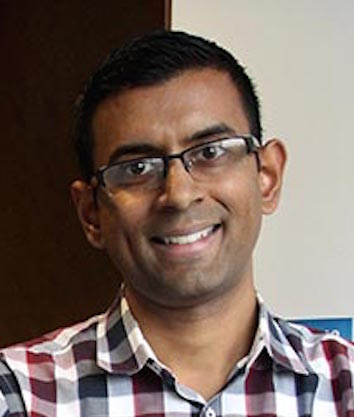 Dean of the Faculty Deborah Prentice will take office as Princeton University’s provost on July 1, succeeding Provost David Lee. Lee has decided to return to full-time teaching and research after serving since 2013 as the University’s second-ranking officer.
Dean of the Faculty Deborah Prentice will take office as Princeton University’s provost on July 1, succeeding Provost David Lee. Lee has decided to return to full-time teaching and research after serving since 2013 as the University’s second-ranking officer.
Author Archives: Min Pullan
Agricultural fires in Brazil harm infant health
Eisgruber, faculty explore global issues at World Economic Forum
 A delegation of Princeton faculty members — led by President Christopher L. Eisgruber and including the University’s 2015 and 2016 Nobel laureates —took part in and led discussions on major global issues at the annual meeting of the World Economic Forum that concluded Friday, Jan. 20, in Davos, Switzerland.
A delegation of Princeton faculty members — led by President Christopher L. Eisgruber and including the University’s 2015 and 2016 Nobel laureates —took part in and led discussions on major global issues at the annual meeting of the World Economic Forum that concluded Friday, Jan. 20, in Davos, Switzerland.
Your ‘anonymized’ web browsing history may not be anonymous
‘The Science of Mythbusters’: A freshman seminar
 As Professor Joshua Shaevitz piped a few drops of methanol into a 35 mm film canister, students plugged their ears with their fingers in anticipation of the imminent bang. The “Piezo Popper,” a small bottle rocket ignited by a piezoelectric spark, is one of the hands-on projects in Shaevitz’s freshman seminar, “The Science of Mythbusters.”
As Professor Joshua Shaevitz piped a few drops of methanol into a 35 mm film canister, students plugged their ears with their fingers in anticipation of the imminent bang. The “Piezo Popper,” a small bottle rocket ignited by a piezoelectric spark, is one of the hands-on projects in Shaevitz’s freshman seminar, “The Science of Mythbusters.”
Conference gives undergraduate women skills, inspiration to pursue physics careers
 Meg Urry was the first tenured physics professor at Yale University and was often the only woman in her physics classes, including her graduate class at MIT, but she still heard a fellow student complain that women were unfairly given advantages over their male colleagues. “That’s when I realized there was something fishy going on,” she said. Urry spoke at the 2017 APS Conference for Undergraduate Women in Physics (CUWiP) Mid-Atlantic Regional Conference at Princeton University.
Meg Urry was the first tenured physics professor at Yale University and was often the only woman in her physics classes, including her graduate class at MIT, but she still heard a fellow student complain that women were unfairly given advantages over their male colleagues. “That’s when I realized there was something fishy going on,” she said. Urry spoke at the 2017 APS Conference for Undergraduate Women in Physics (CUWiP) Mid-Atlantic Regional Conference at Princeton University.
Cholera bacteria infect more effectively with a simple twist of shape
The nexus factor: Examining the African American experience
 Earlier this fall, Wallace Best, professor of religion and African American studies at Princeton, took the students in his “African American Religious History” course on a walking tour of Harlem. “It was truly an educational highlight of my time at Princeton,” said senior Adam Hudnut-Beumler. Best’s course is one of the 24 undergraduate courses offered by Department of African American Studies this fall.
Earlier this fall, Wallace Best, professor of religion and African American studies at Princeton, took the students in his “African American Religious History” course on a walking tour of Harlem. “It was truly an educational highlight of my time at Princeton,” said senior Adam Hudnut-Beumler. Best’s course is one of the 24 undergraduate courses offered by Department of African American Studies this fall.
Views on social mobility shape Americans’ faith in the status quo
 Is the American socioeconomic ladder sturdy, offering a good chance for people to move up and down? Or is it rickety, leaving most people stuck where they are? Psychologists at Princeton University and Memorial University of Newfoundland have found that how Americans view social mobility affects their willingness to defend the basic underpinnings of American society — such as social and economic policies, laws, and institutions.
Is the American socioeconomic ladder sturdy, offering a good chance for people to move up and down? Or is it rickety, leaving most people stuck where they are? Psychologists at Princeton University and Memorial University of Newfoundland have found that how Americans view social mobility affects their willingness to defend the basic underpinnings of American society — such as social and economic policies, laws, and institutions.
Earth’s moon formed millions of years earlier than previously believed
Giant Middle East dust storm caused by a changing climate, not human conflict
 In August 2015, a dust storm blanketed large areas of seven Middle East nations in a haze of dust and sand thick enough to obscure them from satellite view. At the time, the storm’s unusual severity was attributed to the ongoing civil war in Syria. Now, a team of researchers including Elie Bou-Zeid, an associate professor of civil and environmental engineering at Princeton has found that it was caused not by human conflict, but a combination of climatic factors and unusual weather.
In August 2015, a dust storm blanketed large areas of seven Middle East nations in a haze of dust and sand thick enough to obscure them from satellite view. At the time, the storm’s unusual severity was attributed to the ongoing civil war in Syria. Now, a team of researchers including Elie Bou-Zeid, an associate professor of civil and environmental engineering at Princeton has found that it was caused not by human conflict, but a combination of climatic factors and unusual weather.
Viral escape hatch could be treatment target for hepatitis E
Princeton’s IP Accelerator Fund supports promising new technologies
Six new technologies — from a method that enhances X-ray images to a strategy that eliminates cybersecurity threats — will receive University funding aimed at helping to transform promising discoveries from the laboratories at Princeton into widely available products and services for the benefit of society.
Office of Admission launches new, mobile-enabled website
Princeton University’s Office of Admission launched a new interactive website on Jan. 5, providing prospective students and others with engaging and useful information about the quality and affordability of a Princeton education.
Princeton University significant contributor to New Jersey economy
 Princeton University has a substantial impact on the New Jersey economy, generating an annual total of $1.58 billion in economic output as an employer, research and innovation leader, sponsor of construction projects, purchaser of goods and services, and financial and civic contributor to local communities. That total supports an estimated 13,450 jobs with $970.7 million in earnings.
Princeton University has a substantial impact on the New Jersey economy, generating an annual total of $1.58 billion in economic output as an employer, research and innovation leader, sponsor of construction projects, purchaser of goods and services, and financial and civic contributor to local communities. That total supports an estimated 13,450 jobs with $970.7 million in earnings.
Unlocking the potential of light
 One hundred years ago, Italian chemist Giacomo Ciamician predicted a future society that would run on sunlight. Ciamician’s vision has not yet arrived, but a handful of Princeton researchers have succeeded with one part of his legacy: they are harnessing light to perform previously impossible feats of chemistry.
One hundred years ago, Italian chemist Giacomo Ciamician predicted a future society that would run on sunlight. Ciamician’s vision has not yet arrived, but a handful of Princeton researchers have succeeded with one part of his legacy: they are harnessing light to perform previously impossible feats of chemistry.
Eisgruber receives Navy distinguished public service award
Princeton University President Christopher L. Eisgruber has received the U.S. Navy’s Distinguished Public Service Award, the highest civilian honor given by the Secretary of the Navy. The award is given to someone who has “demonstrated exceptionally outstanding service of substantial and long-term benefit” to the Navy.
Harmony and conflict unify nations’ identities
Keller Center’s ‘Creativity, Innovation and Design’ course sparks new perspectives on problem-solving
Committee seeks input on permanent marker of Wilson’s legacy
A committee to establish a marker at the Woodrow Wilson School for Public and International Affairs that “educates the campus community and others about the positive and negative dimensions of Wilson’s legacy” welcomes input from Princeton students, alumni, faculty and staff through a new website.







